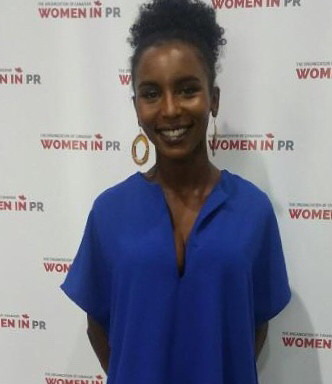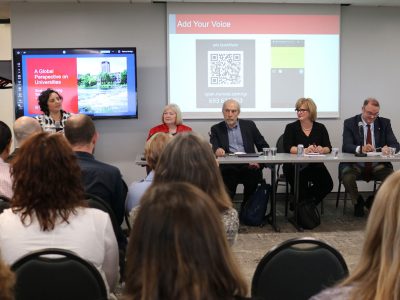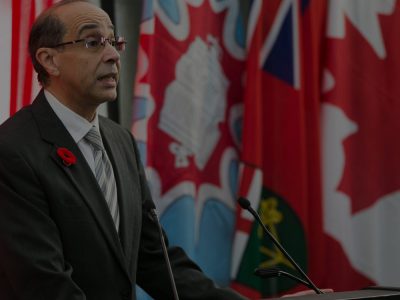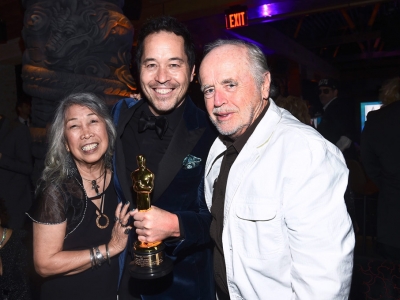By Jena Lynde-Smith
Sarah George is a student, staff member and instructor at Carleton. She was born in Zimbabwe and grew up in the United States and Canada. After earning her Bachelor of Arts at Mount Royal University, George joined Carleton’s Department of Sociology and Anthropology, where she completed her master’s with specialization in African Studies and is now working on her PhD. She says she was drawn to Carleton as it is the only university in Canada that has an Institute of African Studies, which is where she wanted to conduct her research.

Sarah George
“My research explores the Black radical tradition of resistance,” George says. “More specifically, it looks at Pan-Africanism, which is an idea about the unity of all people of African descent that emerged within the Black radical tradition.”
George is looking at how this exists in cities like Ottawa and Calgary, and how people in these cities understand Blackness. She will be focusing her work mainly on African, Caribbean, and Black women.
“Zimbabwe has a history of colonialism just like Canada, but Zimbabwe is a little different because it had a rogue White Nationalist government that we had to fight our liberation struggle against,” George says. “This experience frames my consciousness around race.
“Coming to Canada, I was interested in what the landscape was here — what Black people have been thinking here and what they’ve been doing.”
George’s interest in Pan-Africanism is part of what shaped her vision for Carleton’s Umoja Black Community Engagement Program.
George and her colleagues worked with the Student Experience Office (SEO) to bring their idea to life. They were responsible for naming the organization, coming up with the vision, designing the structure of the programs, setting up an advisory committee, hiring staff, creating the logo and much more.
“We wanted it to have a Pan-African lens,” George says. “We’ve managed to get it up and running and so far, it’s been amazing.”
With the support of the SEO and its previous Equity and Diversity Coordinator Dwaine Taylor, the program was officially launched last year. The name Umoja is a Swahili word meaning unity.
“We chose this name because we are dedicated to addressing anti-Black racism through pro-Blackness and the unity of all people of African descent,” George explains. “Based on the diversity of the Black population in Ottawa, inclusion and togetherness is the basis of what the Umoja program is all about.”
The Umoja program hosts public education programs and events, develops programming about the impact of anti-Black racism, offers support to students transitioning from high school to university, and helps students develop career-ready skills and build personal connections. They hold events at Carleton, in the community and at high schools. The program also recently launched a Future Funder campaign, which will be an emergency fund for Black students. Since its inception, George’s official role in the program has become community engagement lead, a staff position in the SEO.
“It’s a lot of work but we are extremely dedicated to the cause,” says George.
For Black History Month, George and the Umoja program are partnering with community organizations for two important events: Hair & Mind and Body & Soul. The events are culturally safe gatherings for Black women and Black gender diverse people to talk freely about hair health, mental health, sexual health, body care, HIV, and all forms of self-care. On Mar. 5, they will hold a poetry night celebrating the Black Canadian experience in partnership with the Institute of African Studies that will feature poetry performances by Professor Nduka Otiono and others, an open mic, and Senator Wanda Thomas Bernard as a guest speaker.
In addition to her schooling and work with Umoja, George teaches Race, Gender and Society: Through the Arts, a third-year sociology course where university students work with high school students to create a theatrical project about social oppression.
“It is a forum theatre model where the audience can actually intervene,” George says. “It’s a de-escalation practice for students.”
Outside of Carleton, George runs the Equity4Us anti-racism initiative at the Somerset West Community Health Centre, where she plans to facilitate a 12-week program for Black, Indigenous, and Asian community members.
George has dedicated her life to learning, teaching and advocating for decolonization, anti-racism, and Black liberation, which is why Black History Month is especially important to her.
“Every day is Black History Month for me, but at the same time we use this opportunity celebrate being Black and to acknowledge all the people that have come before us and sacrificed so much so we can be where we are today.”
During Black History Month, the Carleton community is mobilizing to promote and highlight Black leadership, achievements and experiences. While Black History Month is an important moment to mark annually, Carleton recognizes that Black inclusion must be an everyday, year-round priority. Visit newsroom.carleton.ca/black-history-month to learn more.
Monday, January 30, 2023 in Black History Month, Sociology and Anthropology
Share: Twitter, Facebook



